The treaty banning intermediate-range nuclear missiles (INF Treaty) is on the verge of collapse after Russian violations. Oliver Meier and Steven Pifer argue that the Europeans should loudly and clearly criticize the Russian treaty violation, and by doing so, leave no doubt in the Russian leadership that the ban on land-based intermediate missiles is equally important to Europeans and Americans alike. This piece is translated from German and was originally published in the Frankfurter Rundschau.
The treaty banning intermediate-range nuclear missiles (INF Treaty) is on the verge of collapse. Russia is developing and deploying a ground-launched cruise missile that is prohibited by the accord. Sooner or later, NATO will have to react to this development.
The new Russian weapons system with the codename SSC-8 is above all a threat to Europe. The intermediate-range weapon cannot reach targets in America. But the preservation of the INF Treaty is a shared transatlantic interest. Should the treaty fail, the remaining limits on U.S. and Russian nuclear weapons could fall away. NATO allies should therefore urge Russia to meet its obligations under the INF Treaty. The agreement provides for the elimination of all American and Soviet ground-launched, short- and intermediate-range ballistic and cruise missiles with a range between 500 and 5,500 kilometers.
The 1987 INF Treaty was a central building block of the new European security architecture. It was the beginning of the golden age of arms control, which included among other things the START Treaty on long-range nuclear weapons as well as the Open Skies Treaty.
These achievements are deeply threatened. In July 2014, the Obama administration accused Russia for the first time of undermining the INF Treaty by developing and testing a new cruise missile. Moscow rejects the accusation of a treaty violation and claims that Washington violates the agreement. For three years, the United States tried unsuccessfully to persuade Russia to come back into compliance with the treaty.
Should this stalemate continue, the collapse of the INF Treaty is threatened.
The SSC-8 changes the security threat situation in Europe in a less drastic way than did deployment of the Soviet SS-20 forty years ago. Russia already has similar sea- and air-based cruise missiles—allowed under the INF Treaty—which have comparable capabilities to the new prohibited system.
With the decision to deploy the new cruise missile at the end of last year, the Kremlin probably is also pursuing the goal of splitting NATO. So far, it is not clear that the Trump administration attaches as much importance to the INF Treaty as did the Obama administration. Moreover, Republican senators and representatives are calling for development of new American intermediate-range missiles and transferring such missiles to U.S. allies. Some in Washington would happily pursue the demise of the INF Treaty.
Loud and clear criticism
The reactions of Europeans, however, so far have been strange. Berlin also has avoided direct criticism of the Russian treaty breach, citing unclear facts about the situation. But the American allegations are now so detailed that such excuses should no longer be an option.
Some European allies perhaps may want to give the United States more time to formulate its own position. Such an attitude would not be wise. First, it could give rise to the false impression in the Kremlin that the matter is not so important to Europeans. Second, there is a risk in waiting, because the Trump administration could eventually come to the conclusion that saving the INF Treaty is impossible or not worth the trouble—and that the agreement hinders development of new American nuclear weapons.
The Europeans therefore should loudly and clearly criticize the Russian treaty violation, and by doing so, leave no doubt in the Russian leadership that the ban on land-based intermediate missiles is equally important to Europeans and Americans alike.
The Foreign Office in Berlin could urge other European governments to address this issue in direct contacts with Moscow and at the highest level. The NATO summit at the end of May is another good opportunity to coordinate multilateral efforts to maintain the INF Treaty. It is certainly not in the interest of Europe, Russia, and the United States to engage in a game of nuclear tit-for-tat.
The Brookings Institution is committed to quality, independence, and impact.
We are supported by a diverse array of funders. In line with our values and policies, each Brookings publication represents the sole views of its author(s).

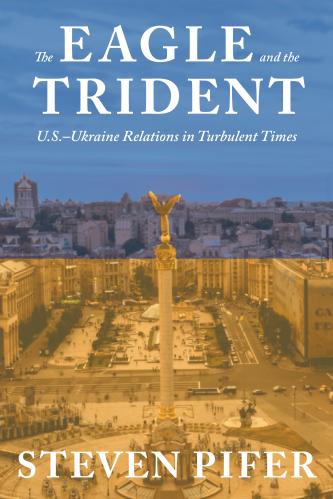
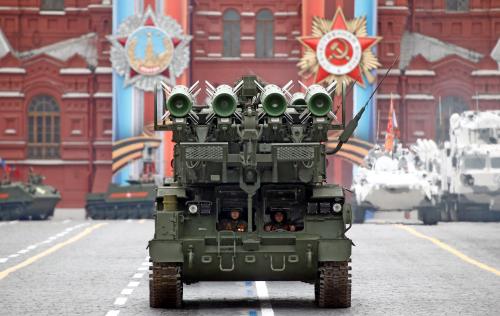
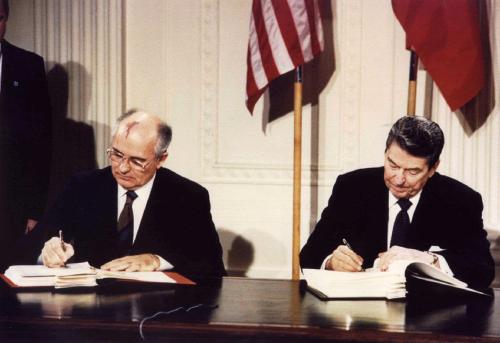
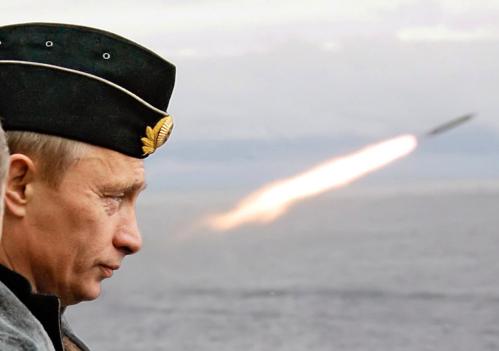

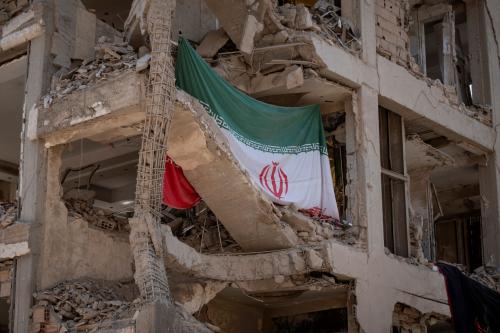


Commentary
Russia’s missile treaty violations directly threaten Europe—so Europe should speak up
May 5, 2017